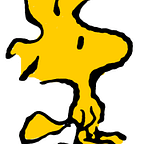Ten Years Later, Beauty Still Blooms Darkly in ‘Pan’s Labyrinth’
Sometimes a film so perfectly encapsulates a director’s talent and promise that it almost serves as a trap. They might make good films after that, maybe even great, but they will always leave you wanting something just a little bit more. Ten years after its premiere, Guillermo del Toro’s Pan’s Labyrinth remains that kind of perfection.
Unfolding before viewers’ eyes like luxuriant nightshade, del Toro’s last great film is a dark treat that delivers a powerful sting. The nightmare conventions are here in his story of a young girl whose moorings to the real world have been quite effectively cut, everything from mysterious forests and exaggeratedly evil father figures to subterranean monsters and a fairy world existing quite close to our own. But instead of losing himself in the otherworldly, del Toro bases this fantasia in the deadliest of realities.
In 1944, Ofelia (Ivana Baquero), a bookish 12-year-old arrives with her pregnant mother Carmen (Ariadna Gil) at an isolated farmhouse in northern Spain. Here, amidst the dark woods and quietly subservient peasants, her new stepfather Vidal (Sergi López), an army captain, has set up base to harass leftover anti-Fascist rebels from the Civil War. The carefully sadistic Vidal has no squeamishness about the humanity of his anti-insurgent campaign, coolly ordering that all food and medical supplies for the nearby villagers be locked up in the farmhouse and only doled out under guard — an attempt to starve out the rebels hiding up in the mountains. While the adults (including the excellent Maribel Verdú from Y Tu Mamá También as a woman with rebel ties) are fully enmeshed in their pungent dramas, Ofelia has her own problems of a different sort.
A small, fluttering fairy takes Ofelia to an ancient and partially overgrown labyrinth near the farmhouse. There, she meets a horned faun who tells Ofelia that she is the reincarnation of the underworld kingdom’s long-vanished princess. So far, so good: what young girl doesn’t want to hear some approximation of those words? The faun says that if she only completes three tasks, she’ll become an immortal, magical being once again.
While the guerrilla fighting sputters bloodily in the thickly wooded mountains, and her mother’s pregnancy turns dangerous, Ofelia pursues her mythological tasks (retrieving a key from the stomach of a giant frog, stealing a dagger from a child-eating monster’s lair) with the single-minded ardor of a child with nothing to lose. These tasks are filmed by del Toro like mini-epics, flooding over with white-knuckle tension and near-euphoric release, as little Ofelia sets herself against all the powers of evil. One of the adults says to Ofelia, “The world isn’t like your fairy tales. The world is a cruel place.” They don’t understand that Ofelia’s fairy tales are as cruel as anything she encounters in the “real” world.
Possessing both a rich sense of the pulpy fantastic and a realistic view of the evils of war, del Toro (who also wrote the pitiless tear-jerker of a script) entwines his two stories with an unexpectedly emotional context. He still retains the comic fanboy love for the trappings of villainy — an entire sound department must have been deployed simply to get the evil creak of Vidal’s leather gloves just right — but there’s a character-driven impulse here which lifts the film far above the level of del Toro’s comic book concoctions from the dull Blade II to the fun but unimaginative Pacific Rim.
With Pan’s Labyrinth, unlike anything he’s done since 2001’s The Devil’s Backbone, del Toro pays as much attention to his humans as he does to his beasts. This care and stark devotion unleashes a story with all the shivering intensity and satisfying denouement of the darkest Grimm’s fairy tale.
Title: Pan’s Labyrinth
Director: Guillermo del Toro
Writer: Guillermo del Toro
Cast: Ivana Baquero, Ariadna Gil, Sergi López, Maribel Verdú, Doug Jones
Studio: New Line
Year of release: 2006
(A version of this review was originally published at filmcritic.com)
